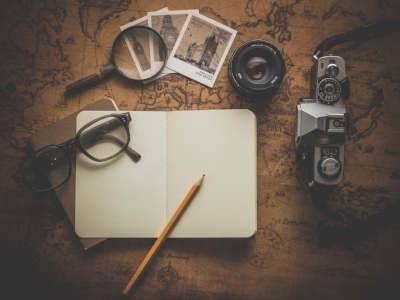8 things you should do after every car accident
As recently as 2015, it was estimated that in California alone there were over 170,000 auto accidents that caused injuries every year. The number of people injured in such accidents is significantly greater at over 250,000 people.
Unfortunately, the reality is that no matter how much focus you place on defensive driving, nothing can really guarantee that you won't get into a car accident.
If such a misfortune occurs, here are certain steps that you need to know and take if you are involved in any car accident. Follow them after any traffic collision to ensure everyone is properly taken care of and that you follow the law.
1. Stop Safely
If you are involved in a car accident, do not leave the scene. Leaving the scene of even a minor accident can have you facing penalties as a hit and run driver. You are required to provide your driver’s license and vehicle registration showing current residence to other involved parties upon request. Failure to comply can result in a fine not exceeding $1,000, imprisonment in county jail for 6 months, or both.
If and only if it is safe to do so, move your vehicle to a safe spot as to not endanger other drivers passing by.
2. Check for Injuries and Get to Safety
The most important thing after an accident is to make sure that everyone is okay and that there are no catastrophic injuries or complications that need your immediate attention. Check if you or any of your passengers have any sprained or fractured bones or any other injuries which will make it difficult for them to exit the vehicle.
Remember that your vehicles can get repaired and replaced, you can't.
3. Call 911 and Wait for Help
Your next step is to either call 911 or the local police or Sheriff’s department to report the accident and request assistance. If there are injuries, this is the time to report it in as much detail as you can so that EMTs can come to assist those who are injured.
4. Exchange Information
While you wait for help you can exchange information with the other driver(s). At a minimum, all involved parties are required to provide their driver’s license and vehicle registration upon request. It is highly advisable that you obtain the insurance information of all the other driver’s as well. You will need this information later when you make a claim with insurance companies or decide to sue other drivers for damages.
If for any reason you do not feel safe talking to the other driver (for example, you suspect they are drunk or that they may become belligerent) you can wait until the police arrive. The officer will ask for everyone's information and provide it to everyone or include it in a traffic collision report, if one is produced.
5. Document Everything
Take pictures of the accident scene, vehicles, and informational documents yourself or have someone take them for you. Take many pictures, from different angles, and from close and afar. Remember to also take pictures of license plates, driver’s licenses, vehicle registrations, insurance cards.
Insist on the law enforcement officer making an official report of the accident. This should make your ensuing insurance claim and potential lawsuit in the future easier.
Once you are allowed to leave the scene of the accident, go to a quiet place and make a record of everything you can remember about the event. Human memory is not reliable and is often wrong, and details are forgotten as time passes.
6. Notify Your Insurer
After the accident, you should notify your insurance company. Depending on the type of your coverage, you may be able to start the car repair and rental process through them. This will also let them know that they should expect the other driver's insurance company to contact them.
Today many major insurance companies allow for filing of a claim through their website. If you prefer a more old-school method you can call them.
7. Seek Medical Attention
Do not wait to seek medical attention. Immediately after the accident you may feel fine but you may have injuries internally that are not readily detectable at the moment. Take an ambulance if you must, and visit the emergency room or urgent care if you feel necessary. At a minimum, visit your primary care physician as soon as possible.
You may not begin to feel specific pains until a couple days after the collision. While it is better to visit a medical professional later than never, you will best recover if you seek medical treatment as soon as possible after the collision.
8. Protect Your Rights
Consider hiring a personal injury attorney. A knowledgeable attorney in this field can help you through both the claims and potential lawsuit process and any other issues involved with the aftermath of an auto accident.
Car Accident Action Plan
Stay safe on the road through defensive driving and always be alert behind the wheel. Should you be involved in an auto accident, follow the above outline to protect your health and legal interests.
Contact our office by phone, text, or e-mail, at anytime for a free consultation with a licensed personal injury attorney.


